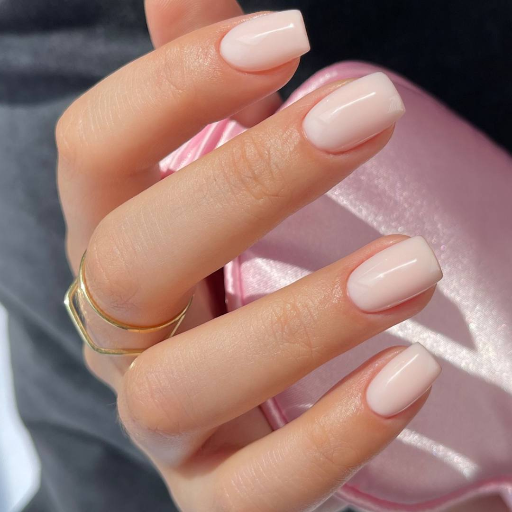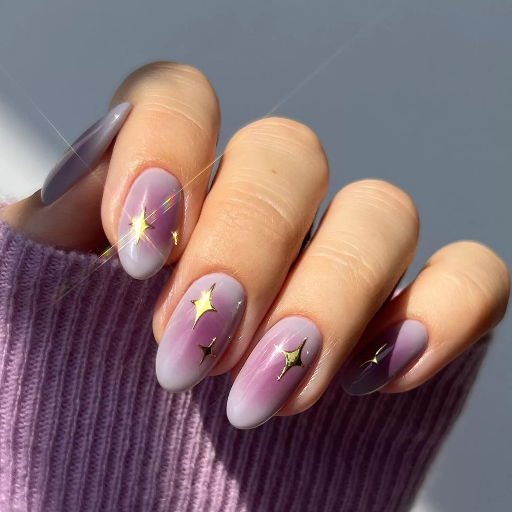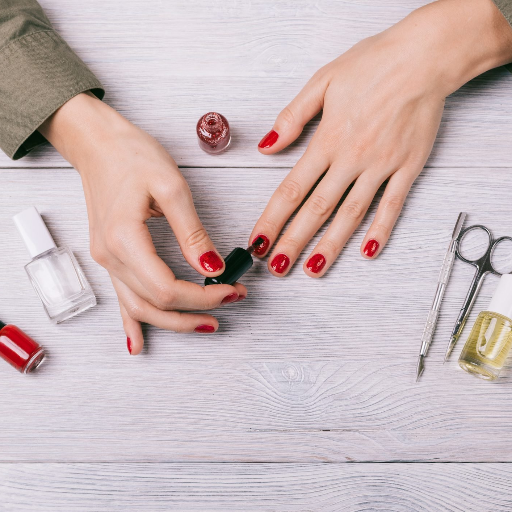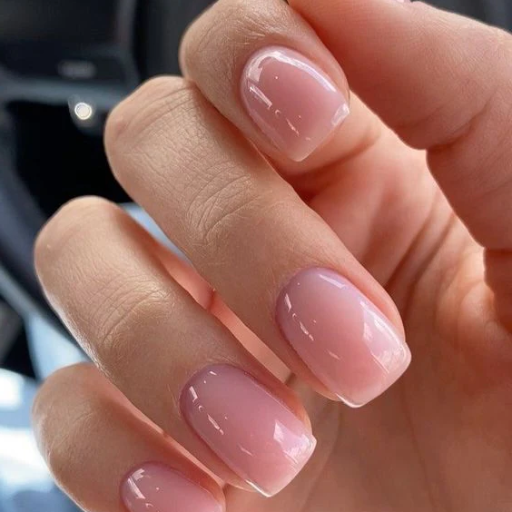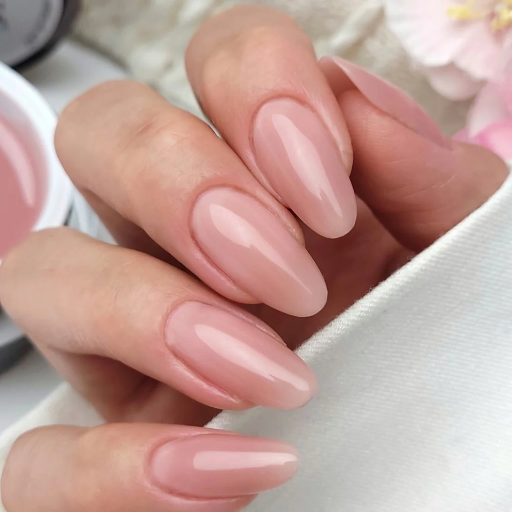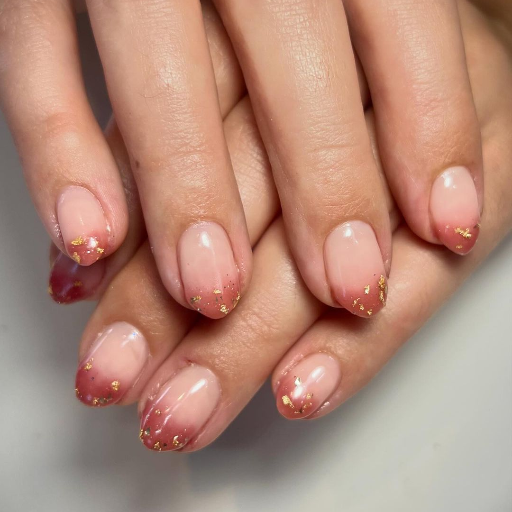To appear healthy and look perfect, the skin should be hydrated correctly. This guide talks about scientifically proven methods to ensure skin has optimal moisturize in varying amounts considering environmental settings, lifestyle aspects, and skincare methods. The introduction helps you understand the consolidation of specific factors to ensure optimal hydration of the skin to maintain its elasticity, barrier function, and overall health. It also helps you identify strategies to reduce the chances of dehydration, irritation, and aging. From your skin, education on how to change your routine to the correct time of year, and what moisturizers to apply, this article is a complete framework for obtaining and maintaining moist and healthy-looking skin.
Why is Skin Hydration Important?

Hydration is important because it helps retain the skin’s barrier function against environmental aggressors like pollution and bacteria. Adequate hydration supports elasticity and reduces the appearance of fine lines and wrinkles while enabling the skin to feel smooth and supple. Hydration also promotes cell function and repair, while minimizing problems such as dryness, flakiness, and irritation. This is the most basic level of skincare protocol but the most vital as it preserves skin health and beauty.
Understanding the Basics of Skin Hydration
Skin’s moisture retention is influenced by both inner and outer factors. Inner factors include the age, genetic, and health status of an individual so, considering these aspects, it allows skin to hold moisture to some extent. For instance, older people tend to have lesser amounts of natural oils and ceramides which leads their skin to be drier skin. Climate or the environment is, however, an extrinsic factor and includes aspects like humidity, pollution, skincare products, etc. Frequent use of harsh cleansers or poorly formulated moisturizers can easily strip the skin of its lipid barrier causing it to lose water and other fluids.
To have the required amount of moisture on your skin, various techniques can be used in combination like moisturizers with humectants such as hyaluronic acid or glycerin would serve the placing purpose would attracting water towards the skin and also help retain the water. There are also occlusive agents like petrolatum or shea butter that provide a shield and reduce the transepidermal water loss. Using supplements with emollients will aid in smoothing and filling the deficiencies of the skin lipid matrix further enhancing the overall hydration and strength of the skin.
How Dehydrated Skin Affects Your Appearance
Dry skin can considerably alter your look as it decreases radiance and increases uneven skin texture. Insufficient water intake reduces the skin’s ability to carry out such functions as cell turnover, which leads to roughness and the appearance of dullness to the surface. Fine lines and wrinkles may also appear more distinct with dry skin as it loses its elasticity and plushness. What’s more, dry skin lacking moisture can lead to blotchiness, inflammation, and breakouts, as it weakens a person’s skin barrier. Sooner or later, these problems can make one appear tired and older than their actual age which illustrates why optimal hydration of skin is crucial.
The Role of Skin Cells in Maintaining Hydration
Skin cells are crucial in staying hydrated through a complex interaction of the skin lipid barrier, NMFs, and water content regulation. The outermost part of the skin called the stratum corneum consists of spongin and keratinized cells embedded in a lipid matrix which presents moisture retention and prevents TEWL. NMFs include substances such as amino acids and urea, which contain the ability to attract and hold moisture within the skin for pliability and structural support. Furthermore, aquaporins, located in skin cells, provide regulated water transport through cell membranes, increasing the level of moisture in cells. Compromise of any of these mechanisms sources dehydration confirming the integrated activities of skin cells enabling maintenance of normal pulsatile and moist epithelium.
What Are the Causes of Dehydrated Skin?

Dehydrated skin is a condition that can be dire for one’s surface skin and can be due to powerful winds, sunlight, temperature, etc. The emphasized layer gets damaged due to environmental exposure and it’s because the water supply is quite low. This condition can also arise from lifestyle choices such as excessive alcohol or caffeine and not consuming enough water. Moreover, improper usage of exfoliants or cleansers can gravely damage the outer layer of the surface skin which can hinder water supply further. Among other external factors, diabetes, and aging can also worsen the situation. All of the stated factors take a toll on the water balance management of the skin and it can be seen in the form of dull surface skin that does not look appealing at all.
Environmental Factors That Dry Out Your Skin
Environmental factors have a vital role in the skin moisture imbalance. For example, cold weather combined with dry air in winter or even heat can exacerbate dryness which is one of the most aggressive aspects, and abuse of winter conditions combined with indoor heating and air conditioning systems can further deteriorate the situation as moisture retention becomes compromised. When the skin absorbs too much moisture from dry air, it leads to a headache that can result in irritation and rashes. Most aspects of the environment can further destroy the barrier that can keep the skin moist. For example, exposure to the sun for a long period – wouldn’t be an ideal option as it could damage collagen disintegrate the wrinkles, and also harm UV rays. Other factors such as wind can also add fuel to the fire as they will enhance evaporation that will overuse the boundary protection the skin can offer. All of these aspects if neglected can leave the skin in ruins which is dull in color, has no smoothness, and is irritating, to name a few.
Common Habits That Cause Skin Dehydration
Stay Hydrated
First, about water intake. Achieve and maintain proper hydration inside the body. The water consumed every day influences the skin’s moisture level and its capacity to function and withstand external aggressors, and thus experts recommend drinking about 8 glasses a day. This number may be adjusted based on the body’s activity levels and climate.
Use Humidifier
Indoor environments can become uncomfortably dry due to the use of climate control equipment such as heaters or air conditioners. A humidifier when used in these situations can help combat the sustained moisture loss that dry air incites.
Use Moisturizers
Foams, gels, and creams that contain hyaluronic acid, glycerin, and ceramides are effective cleansers and moisturizers. They help retain moisture content within the skin barrier by preventing moisture loss.
Cut Down On Face Washing
While this might appear logical, many miss out on cleansing their faces in moderation. Over-cleansing is just as dangerous as under-cleansing because it can strip the skin of its natural oils. This can lead to a collapsed skin barrier, whose job is to combat bacteria. Always remember to only wash your face with lukewarm water one or two times a day.
Use Sunscreen And Protective Clothing
Wear hats and clothing that covers the majority of the body to reduce sun and temperature exposure. Apply sunscreen that is broad spectrum SPF 30 or higher. The goal is to stop premature aging and skin dehydration, which will reduce the overall quality of the skin.
By being consistent with all of these suggestions and recommendations, the chances of skin dehydration can be effectively reduced the skin will always appear fully nourished.
How to Hydrate Your Skin Effectively?

Starting properly is crucial to successfully maximize the hydrating potential of your skin, so begin by adopting a regular skin care method that integrates products aimed at restoring moisture and firming the skin’s protective membrane. As a proactive approach, utilize a mild cleanser that is hydrating in nature followed by serum, preferably of humectant formulation like Hyaluronic acid which draws moisture into the skin and helps retain it. For optimal hydration ensure to apply an effective emollient due to its occlusive properties after a moisturizer which ensures the stability of the hydration. Drink enough water daily and also eat a nutritious diet that has many essential fatty acids as they help moisturize the skin from the inside. Implementing a humidifier in winter months can also be beneficial as it will aid in retaining moisture within the skin and prevent it from becoming dry and chapped.
Skin Care Products That Help Keep Skin Hydrated
To ensure optimal hydration, consider including the following products in your routine:
- Hyaluronic Acid Serums
Hyaluronic acid is a powerful humectant capable of holding up to 1,000 times its weight in water, making it essential for attracting moisture to the skin. Popular options include The Ordinary Hyaluronic Acid 2% + B5 and La Roche-Posay Hyalu B5 Pure Hyaluronic Acid Serum, both of which provide intense hydration while being suitable for most skin types.
- Ceramide-Based Moisturizers
Ceramides help restore the skin’s natural barrier, reducing water loss and locking in moisture. CeraVe Moisturizing Cream and Eucerin Advanced Repair Cream are widely recommended for their ceramide-rich formulas and ability to deliver long-lasting hydration.
- Occlusive and Barrier Creams
Occlusives create a protective layer over the skin to lock in water. Products such as Vaseline Healing Jelly or Aquaphor Healing Ointment are excellent for sealing hydration, especially in dry or sensitive areas.
- Squalane Oils
Squalane oil mimics the skin’s natural oils, providing lightweight yet effective hydration without clogging pores. Biossance Squalane + Vitamin C Rose Oil and The Ordinary 100% Plant-Derived Squalane are frequently highlighted for their moisturizing and skin-softening properties.
Using a combination of these targeted products, in conjunction with a comprehensive skincare routine and healthy lifestyle, ensures maximum hydration for all skin types. Select formulations based on individual skin needs for the best results.
The Benefits of Hyaluronic Acid for Hydration
Hyaluronic acid is one of the most effective substances for skin moisturizing, which is crucial for the skin’s self-defense. Because of its specificity to the dermis, it can absorb water in amounts up to 1000 its weight which explains the popularity of hyaluronic acid in special creams formulated for deep moisturizing of the skin. The hyaluronic acid serves the purpose of attracting and binding moisture to the multiple layers within the skin, thus enhancing the skin’s ability to stretch, smoothing its top layer, and reducing the visibility of wrinkles. Furthermore, hyaluronic acid also supports the skin barrier and therefore improves the skin’s resilience to exogenous agents. Its multifunctionality makes it appropriate for every skin type including sensitive and acne-prone skin as it hydrates without the use of thick and clogging skin pore formulations. To achieve the desired results, hyaluronic acid should be evenly spread over the damp area of the skin followed by a moisturizer to prevent the water from evaporating.
Adapting Your Skin Care Routine for Better Hydration
Apply a few drops of concentrated ATOPIA diluent on the towel-dried face and neck with gentle strokes, then apply your moisturizer BYK JL or Archangels Lotion on top. These warp the skin barrier in place while the ATOPIA penetrates further. Make sure to not use foaming cleansers as they can be counterproductive and cause stripping damage.
No need to rub or massage skin vigorously after applying the moisturizers or serums. A bit of cooling or heat can help lock in moisture from the ATOPIA. Dry weather can be especially tricky for people like me, as at times I do have dry patches on my forehead. One tip to avoid that is to use sunblock with ATOPIA in case of extreme weather.
Pollution can be tough on the skin, so regular usage of moisturizing sunscreen helps. I still recommend using a good amount of ATOPIA once your face is towel dried as it’s very versatile. Since oils and ointments are bad for the skin, stick to creams or light moisturizers and use them in concentration, otherwise, they have the opposite effect. Using mild cleansers after moisturizing will also give you beneficial results.
H3O is not the only factor that requires consideration concerning skin hydration. It is also essential to maintain nutritional balance with sufficient intake of omega fatty acids and proper moisture within the indoor atmosphere. In conjunction, these measures promote a well-hydrated and pliable skin.
What Are the Best Ways to Hydrate?

Internal Hydration
All forms of internal hydration begin with drinking enough water on a daily basis: according to the recommendations provided by the National Academies of Sciences, women should aim for about 2.7 liters per day while men are advised to have 3.7 liters. Alternately, hydration is also supported by including diet foods with high water content such as cucumbers, watermelon, or oranges. Moreover, the dehydration caused by sweating could be compensated by taking beverages such as herbal teas or electrolyte drinks.
External Hydration
In terms of external hydration, one should concentrate on applying products that have humectants such as hyaluronic acid and/or glycerin which can absorb and retain large amounts of moisture within the skin. In addition, occlusive agents such as petrolatum or ceramides may be added to prevent moisture loss from the skin. Lastly, for enhanced absorption, these products can be applied on damp skin and can be applied during substantial portions of the day. Changing skincare habits according to seasons and using a humidifier during dry seasons may also improve the skin’s ability to retain moisture. Adding these external mechanisms to the deep internal hydration levels creates a new strategy on how to maintain the optimum level of moisture in the skin.
Simple Ways to Keep Your Skin Hydrated
Drink Adequate Water Daily
An adequate attempt of drinking at least 8 glasses daily is crucial so as to ensure that there is adequate internal hydration of the body which in return aids in good skin health.
Use a Gentle, Hydrating Cleanser
Go for cleansers that are free from chemicals especially ceramides and aloe vera as they strip off the natural oils and use hydrating ingredients to wash.
Apply Moisturizer Immediately After Washing
Make it an obligation to put on a moisturizer a few minutes after washing your face or after taking a shower and look for products that contain glycerin, hyaluronic acid, or dimethicone which are good for hydration.
Invest in a Humidifier
A humidifier will raise moisture levels in air, especially in cold seasons or dry areas which dampens the effect dry air has on your skin.
Protect Your Skin Barrier
Use sunscreen on a daily basis so as to help curb the effects that come as a result of sunburns and opt for skincare with niacinamide or ceramides that help strengthen your skin barrier which is an effective moisture retention tool.
Eat a Balanced Diet
Raise the IQ level of your diet by adding fatty acid-containing food such as salmon or even walnuts and plenty of fruit and vegetables for antioxidants and these nutrients promote hydration from within and skin repair.
Incorporating such practices into your daily routine helps to maintain your skin’s moisture and health. It is important in the long term to periodically evaluate your skin’s condition and make changes when appropriate.
How to Stay Hydrated from the Inside
To ensure that the body operates properly, achieving standard levels of hydration would require a set of attributes to also be present. For starters, aim at adequate daily water intake, which is 8-10 cups for an active adult man or woman depending on their environmental context. Incorporating such water-based products as cucumbers, watermelon, and oranges would also go a long way in aiding hydration as such foods supply people with vitamins and minerals. Caffeine and alcohol intake would not be recommended since they are diuretics and can lead to dehydration. Finally, the triad of pre and post-exercise electrolyte balance maintenance as well as hydration sustenance would also be crucial, employing coconut water and electrolyte solutions alongside water would provide broad relief to one’s cells.
The Importance of a Balanced Diet for Glowing Skin
Having a good balanced diet is very important for achieving clear, smooth skin. Foods that contain nutrients are important in skin repairs as they also help minimize oxidative stress from free radicals. Including antioxidant-rich fruits and vegetables such as berries, spinach, and kale helps neutralize the free radicals and helps the skin maintain elasticity. Omega-3 fatty acids in salmon, walnuts, and flaxseeds help keep the skin moisturized and reduce inflammation, thereby decreasing redness and irritation. Moreover, collagen synthesis is enhanced by vitamin C from citrus fruits and bell peppers which increases skin firmness. Zinc from pumpkin seeds and chickpeas assists in the healing of wounds and the moderation of acne. Similarly, sugary and processed snacks must also be avoided as they may cause inflammation, breakouts, and even skin dullness. Having a well-planned diet alongside enough fluids will do wonders for the skin as it leads to healthy and glowing skin.
How Can You Prevent Dry Skin?

Strategies for dry skin require effort in skincare routines and environmental setup. For a start, it is recommended to employ a simple detergent that is fragrance-free so that the natural oil balance is not disrupted, subsequently followed by a moisturizing film rich in constituents such as ceramides and or hyaluronic acid. Avoid long hot showers, choosing instead to take short ones, as hot showers tend to promote the slinking of ceramides. In more extreme weather conditions, utilize a humidifier in indoor surroundings, especially in the colder months, this would help maintain adequate air moisture levels. Over that, avoid straining your skin with heavy coarse materials by opting for softer cotton ones that allow for better breathing of the skin. Drinking plenty of water together with good fats like omega-3s would complement the skin.”
Effective Strategies to Prevent Water Loss
The skin’s moisture loss can be efficiently prevented by enhancing the skin barrier and reducing the impact of external factors that may cause water evaporation. One approach to achieving this aim is employing occlusive agents like petrolatum or beeswax consistently. Such agents form a coat that reduces the amount of transepidermal water loss (TEWL). Supplementing the formula with humectants such as glycerin or hyaluronic acid could enhance moisture retention and draw moisture into skin layers. Another great tip is timing the hydration of the skin right after washing when the skin is still moist.
A significant environmental factor that may influence skin moisture is humidity and a reasonable level would be between thirty to fifty percent. Humidifiers are a great adjustment to the environment especially during harsh climates where maintaining moisture levels in the skin would be an uphill task. Also, minimizing the use of strong detergents, chemicals, or hot water can help to mitigate the loss of water. A comprehensive approach that includes drinking sufficient amounts of water, antioxidants, and essential fatty acids would reinforce skin from the inside out. Altogether these methods would minimize moisture evaporation from the skin.
Tips for Hydrating Skin Care During Winter Months
Layer Your Hydration
Moisture retention can be increased by ‘layering’ – using a hydrated toner or essence immediately after cleansing, applying humectant serums such as hyaluronic acid followed by a thick occlusive moisturizer.
Use Gentle, Moisturizing Cleansers
Non-stripping, sulfate-free cleansers designed for dry or sensitive skin are preferred because they do not strip the skin of its natural barrier and moisture content.
Invest in a Humidifier
Indoor heating systems tend to sap moisture from the air, which can lead to dry skin. Using a humidifier can help maintain the normal levels of humidity indoors to prevent your skin from drying out too much.
Protect Your Skin Barrier
Skincare products enriched with ceramides and lipids should be used on the skin to help protect the skin from the cold and repair it from the harsh winter elements.
Limit Hot Showers
Try to avoid long hot showers, instead take shorter lukewarm showers, and lock in moisture with a moisturizer as soon as you are out of the shower as this will prevent the skin from losing its oils.
Apply Sunscreen Daily
Regardless of the season, sun exposure increases the risk of skin problems during winter, and protects the skin with SPF 30 or above, even in cold weather.
To Encourage Hydration
Ensure that you are sipping sufficient water during the day and complementing your meals with fatty acid foods such as salmon and walnuts together with a variety of vegetable sources rich in antioxidants. This will help improve the hydration of your skin and its elasticity.
Integrating these techniques can protect the skin from drying out and keep it healthy and well-nourished even during the cold season.
Understanding Your Skin Type to Prevent Dehydration
The first step in preventing dryness is to determine your skin type as different skin types have very different types of care that are needed to be optimally hydrated.
Dry Skin
People who have dry skin tend to experience a sense of tightness, skin flakiness, and an absence of natural oils. Ideally, one should cleanse using gentle cleansers and apply thick emollients to prevent moisture loss. Ingredients that have hyaluronic acid and ceramides will be very useful in improving skin hydration. Excessive stripping exfoliants should be avoided as well since they remove oils from the skin.
Oily Skin
Though it’s not conventional, oily skin can lack hydration. This typically happens when the skin creates too much sebum to compensate for lost water. Such skin should be moisturized using nonaddictive means such as glycerin which acts as a lightweight component. The skin shouldn’t be completely dried out hence balanced cleansers should be used to control oil but not too much to limit the skin.
Combination Skin
Combination skin tends to have patches with high sebum concentrations and other variables with lower production, commonly a zone in the T area and cheeks. Treating the dehydrated region in a targeted approach will prove more useful. To help timid women, a light moisturizing tone combined with anti-brushes may help lengthen the dry areas targeted.
Sensitive Skin
Sensitive skin is easily irritated and very prone to redness, making it necessary to use fragrance-free, hypoallergenic makeup. Naturals such as aloe vera and chamomile lock in moisture and allow the skin to remain calm.
Consistently analyzing your skin, modifying your regimen according to the seasons, and focusing on moisturizing products that are suitable for your skin type will be effective in avoiding dehydration and maintaining an even complexion throughout the year.
References
Frequently Asked Questions (FAQ)
Q: What are the primary causes of dehydrated skin?
A: Dehydrated skin may be caused by factors such as environmental conditions, insufficient water intake, and harsh skincare products that strip the skin of its natural oils. Dehydrated skin lacks water, impacting its appearance and health.
Q: How can I choose the right products for my skin type to maintain hydration?
A: Selecting products for your skin type is crucial. For oily skin, opt for lightweight, non-comedogenic moisturizers. For sensitive skin, choose gentle, fragrance-free products to avoid irritation. Hydrating serums and creams are beneficial for your skin, helping to strengthen the skin barrier.
Q: What are some effective ways to hydrate your skin?
A: To hydrate your skin effectively, use a combination of topical treatments like hyaluronic acid serums and moisturizers, and lifestyle changes such as drinking plenty of water and eating water-rich foods. These methods help moisture to your skin and improve its overall health.
Q: How can oily skin be kept hydrated without making it greasy?
A: For oily skin, use oil-free and non-comedogenic moisturizers that hydrate without adding excess oil. Look for ingredients like hyaluronic acid and glycerin, which hydrate and maintain skin health without causing greasiness.
Q: Why is it important to remove dead skin cells regularly?
A: Removing dead skin cells is essential for maintaining skin health as it prevents clogged pores, enhances skin texture, and allows better absorption of skincare products. This process can also make your skin look more radiant and vibrant.
Q: How can I treat dry skin and prevent dry patches from forming?
A: To treat dry skin and prevent dry patches, use rich moisturizers that contain ceramides and shea butter, which help strengthen the skin barrier. Avoid hot showers and harsh soaps, which can strip moisture from your skin, leaving it feeling dry.
Q: What role does the skin barrier function play in hydration?
A: The skin barrier function is crucial in retaining moisture and preventing irritants from penetrating the skin. A healthy skin barrier helps keep your skin hydrated and protects it from environmental damage, which is vital for overall skin health.
Q: Can drinking water improve skin hydration from the inside?
A: Yes, drinking adequate water can help hydrate your skin from the inside, supporting its elasticity and overall health. While topical products are necessary, internal hydration complements topical efforts to keep your skin healthy and glowing.
Q: How can I keep my skin healthy and glowing throughout different seasons?
A: To keep your skin healthy and glowing year-round, adapt your skincare routine to the changing seasons. In colder months, use heavier creams to combat dryness, while in warmer months, switch to lighter lotions. Consistent sun protection and a balanced diet are also beneficial for your skin.


